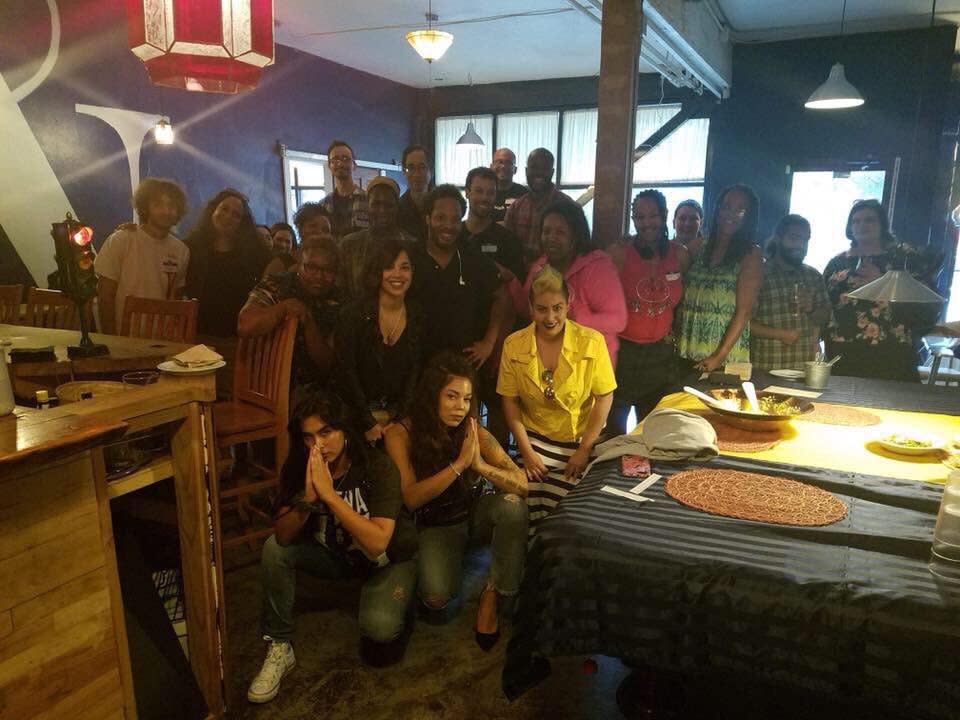White people invited to pay for black people's drinks at bar in 'Reparations Happy Hour'

In Portland, Oregon, organisers of the “Reparations Happy Hour” invited black, brown and indigenous people to a bar and handed them $10 bills as they arrived, a small but symbolic gift mostly funded by white people who were asked not to attend.
Brown Hope, a local activist organisation, wanted the event, which was held Monday, to be a space for people of colour in a mostly white city to meet one another, discuss policy issues and plan potential action.
While it was far from the full-scale reparations sought by some as penance for the horrors of slavery and continuing racial injustice, Cameron Whitten, the 27-year-old activist who organised the event, said there was one similarity: It made attendees feel as if their pain was valued and understood.
“It was only $10, but when I saw them I saw their eyes light up,” he said. “What I saw there was that people felt like they were finally seen.”
Whitten said he hoped the event, in addition to building community, would call attention to reparations — the concept that black people should be financially compensated for the generations of trauma that preceded them. Anticipating some criticism, he said the event was not meant to diminish the seriousness of the reparations issue.
The subject has been the source of spirited debate but has not attracted widespread support. In 2016, an Exclusive Point Taken-Marist Poll found 68 percent of Americans were opposed to reparations, including 81 percent of white people. Among black people, 58 percent supported it and 35 percent were opposed.
Activists are pinning hopes on H.R. 40, a bill introduced in Congress in January 2017 that would study reparations proposals. Ron Daniels, the president of the Institute of the Black World 21st Century, a group that supports reparations, said they would be necessary for America to “fully heal itself.”

 Yahoo News
Yahoo News 
